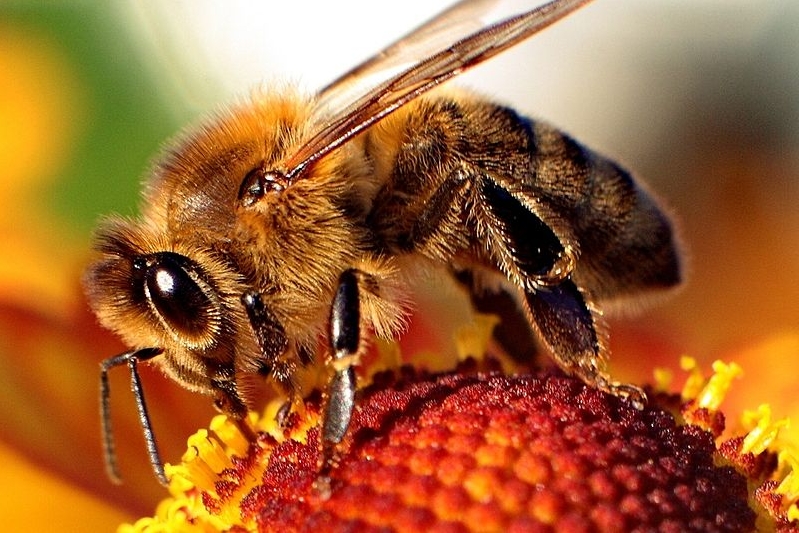
The addictive properties of caffeine are well known in humans, but research from the University of Sussex suggests the drug is also having an influence on the humble honey bee.
Research led by Dr Margaret Couvillon, Roger Schürch, and Professor Francis Ratnieks, suggests that plants trick bees into repeatedly visiting their flowers by producing the compound in its nectar. The scientists believe the flying insect is fooled into thinking the nectar contains more sugar than it actually does. This encourages the bee to return to flowers containing caffeinated nectar rather than visiting those that offer equal or lower quality sustenance, but do not contain the drug.
The researchers from the University's Laboratory of Apiculture and Social Insects (LASI) set up two false flowers at the university in Falmer, just outside the English city of Brighton. Both glass bowls contained a mixture of sucrose and water, but only one was caffeinated. Small identification numbers were glued on to the backs of those insects exposed to caffeine. The tests were conducted both outside in the grounds of the university and inside glass observation hives in their laboratory.
As Ratnieks explained, "the research involved setting up syrup feeders and training honey bees from hives to visit those feeders; and then the bees that visited those feeders had little numbers put on them, and then we could then see how many trips they made per hour and also, most importantly, did they make their waggle dances when they returned to the hive?"
Plants such as citrus and coffee beans produce caffeine as a sour deterrent against plant-devouring insects, such as caterpillars. But the research suggests they also produce the compound to trick bees into pollinating them.
In the tests the caffeine caused honey bees to forage more and made them four times as likely to direct their friends to the caffeinated forage using their 'waggle dance' technique. Previous research by the team had showed a similar effect by increasing the sugar concentration in a syrup feeder containing artificial nectar being visited by marked bees.
"What we found was that caffeine would have the effect of more sugar," said Ratnieks. "The one that did have caffeine attracted more bees, but in particular the bees who were foraging made more dances, about four times as many dances."
In some instances bees returned to sites where they had previously found caffeinated nectar even after the feeder had run dry. After sipping the caffeine-infused syrup, bees were also less inclined to search for other resources. The team believes this means that plants may be lacing their nectar with caffeine as a way to pass off sub-standard forage.
"What the caffeine is doing is the plant manipulating the bee in a way that is good for the plant, but not so good for the bee because the bee is kind of being tricked into thinking that the nectar is of a higher quality - that is it has more sugar than it really does," said Ratnieks.
Earlier research at the University of Newcastle showed that caffeine boosted bees' memories of the location of a flower.
Couvillon believes her group's findings are a reminder that, although mutually dependent, the interests of plants and pollinators sometimes conflict.
"The importance of this research is that we understand better the relationship between plants and insects for pollination and here what we're seeing, as is often the case with relationships, there are slight tensions between the parties," added Ratnieks.






